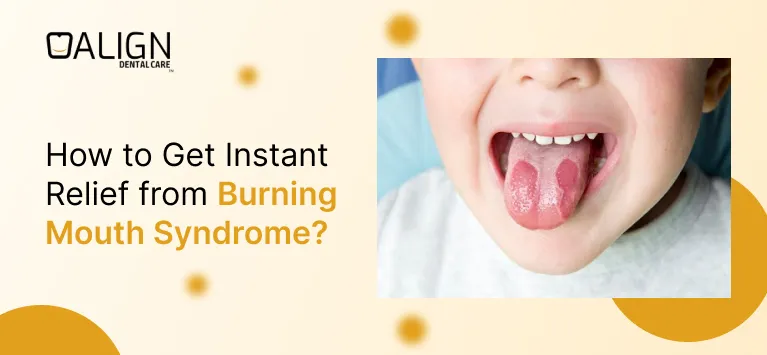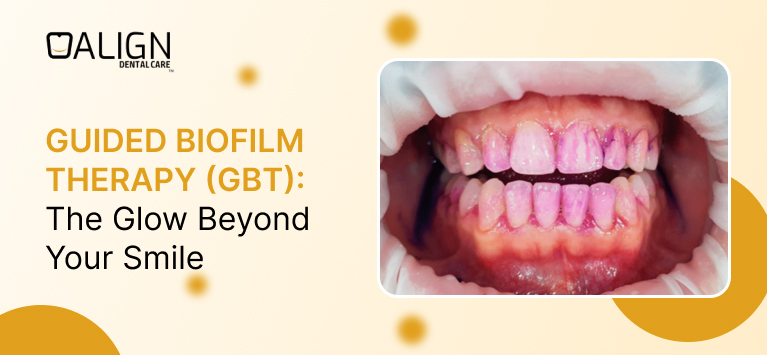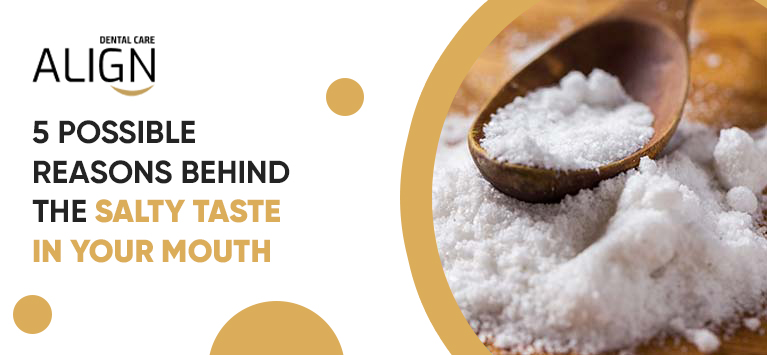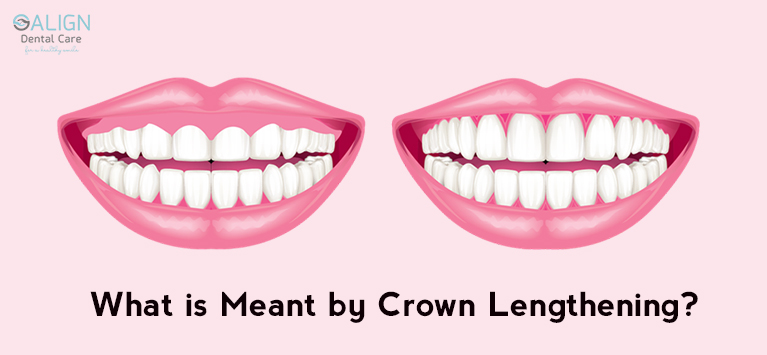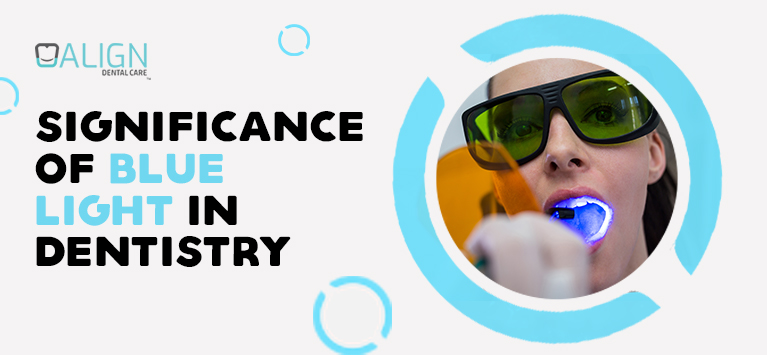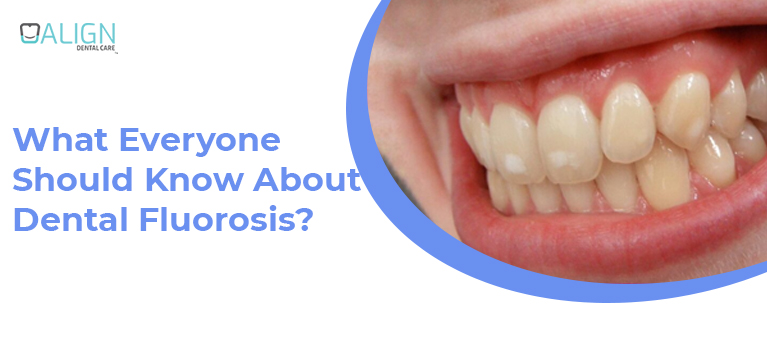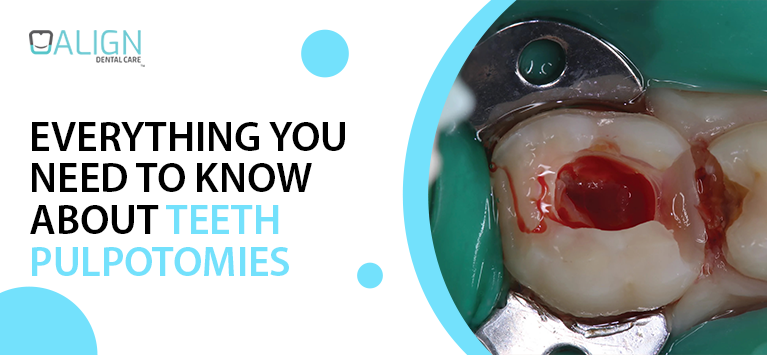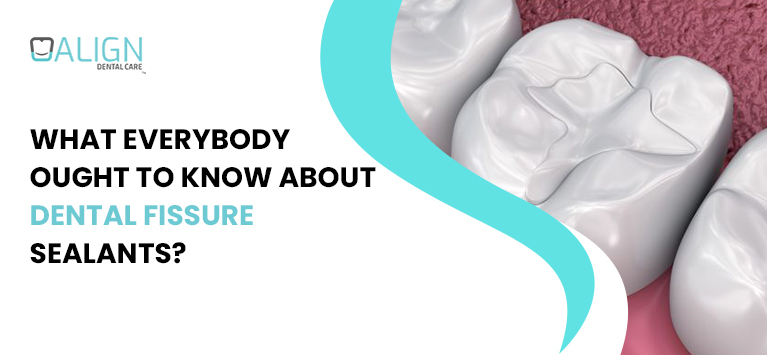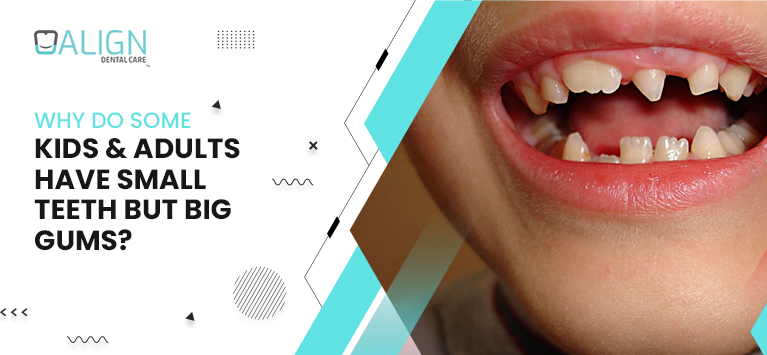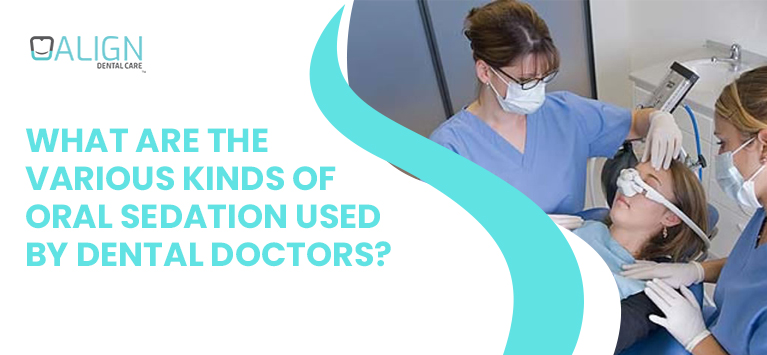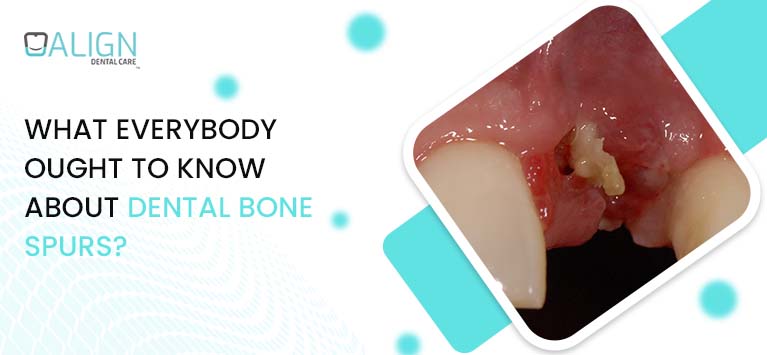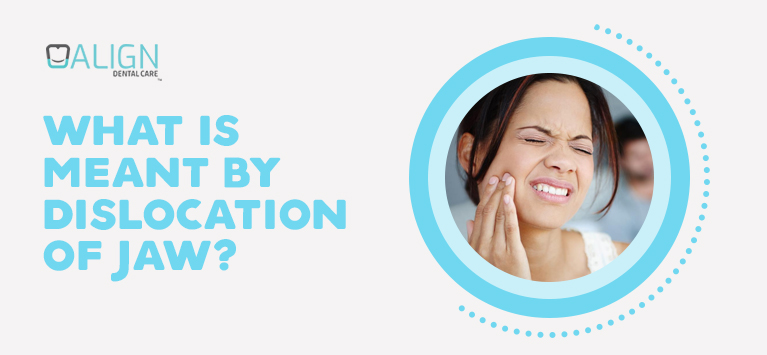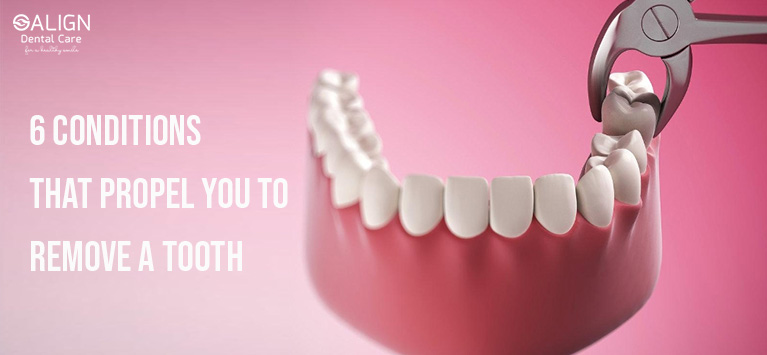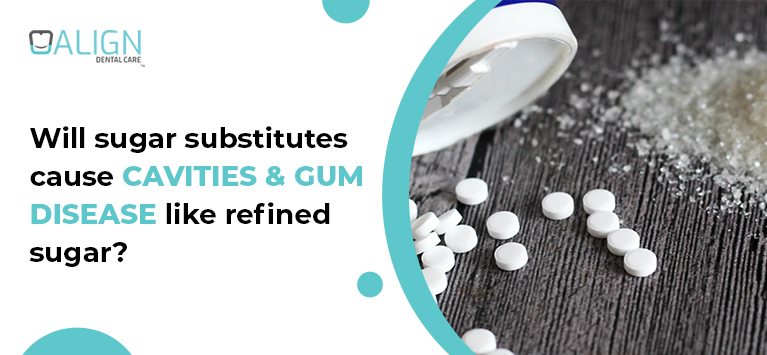
Will sugar substitutes cause cavities & gum disease like refined sugar?
Artificial sweeteners, also known as Sugar substitutes are calorie-free, non-nutritive chemical substances that provide a sweet taste to foods and drinks. Some are made with benign chemicals, while others are prepared from naturally occurring substances like herbs. It allows people to enjoy the sweet flavor of nourishments but without sugar. They are prevalently used in eatables like jams, fruit juices, jellies, candies, etc.
It is a well-known fact that consuming too much sugar causes cavities and type 2 diabetes. However, certain people get dental caries, gum infections despite taking foodstuffs, and beverages that are branded as “Sugar-free”.
It has raised the question “Will artificial sweeteners affect our teeth?” in the minds of many people. It is also something that our patients have inquired about. We explained it in detail here. Keep reading.
Table of Contents
How does sugar cause tooth decay?
Sugars are naturally occurring carbohydrates. When you drink sugary drinks or take sugar-sweetened cuisines, the harmful microbes like bacteria, germs feed on the sugar in those edibles you consume. It is then broken down into acids that can weaken and damage the teeth surfaces.
Oral bacteria will produce such acidic compounds for further 20 minutes even after you finished your sugar-filled nourishments consumption.
If it happens frequently, tooth decay will occur.
Likewise, the acid produced will combine saliva, food, and bacteria forming a sticky substance called “Plaque” over the gum surfaces. If it is left untreated, infections in the gums will occur.
What are the effects of sugar substitutes on teeth?
Unlike sugar, artificial sweeteners like Sucralose, Saccharin and others which are used prevalently do not contain the calories. Hence oral bacteria do not consume the sugar substitutes as their food source. So you don’t worry about the acid wastes produced by bacteria in your mouth.
Besides this, artificial sweeteners have anti-cariogenic effects so they cannot act as a catalyst to decalcify and weaken your teeth. Instead, the sugar substitutes contribute to reducing the decay-causing bacteria in your mouth in many ways.
- Reduce cravings for sugar – Candies, beverages, and other eatables sweetened with sugar substitutes also have delicious tastes. It is because the sugar substitutes taste 300 times sweeter than real sugar. Thus it limits your sugar cravings and makes you less susceptible to developing cavities.
- Boost saliva production – Saliva substitutes like Xylitol can elevate the salivary flow inside your mouth. Saliva is a natural defender against harmful oral bacteria like streptococcus mutans. Hence dentists frequently suggest chewing sugar-free gums such as Xylitol gums after each meal.
- Neutralize the saliva pH – The acid wastes produced by oral bacteria will create an acidic environment in your mouth. It can be balanced with the increased salivary flow. Chewing xylitol gums can help reduce oral acidity in the same way that drinking plenty of water can.
How do some people develop cavities even after taking synthetic sugar substitutes?
Saliva Substitutes (or) Artificial sweeteners do not feed on oral bacteria. However, the non-sugared soft drinks also contain a high level of acid. Similarly, the foodstuffs prepared with sugar substitutes also contain acidic compounds. The sugar substitutes do not reduce the acidity of such nourishments.
Hence consumption of such foods and beverages with artificial sweeteners changes your mouth acidity. It contributes to increasing the bacterial population as sugar-filled counterparts do.
Cavities are caused by acidic compounds such as citric acid and phosphorous acid found in sweets, drinks, and other foods made with nourishments prepared with sugar substitutes.
Bottom Line
Sugar substitutes are non-nutritive sweeteners. They do not contain calories or sugar. Artificial sweeteners like Aspartame, Stevia, Saccharin, Saccharin, Xylitol, and Acesulfame Potassium are widely used as an alternative to refined sugar. Even though these substances do not feed oral microbes, other flavoring agents tend to wear down enamel.
Hence you should maintain a strict oral care regimen to protect your dental health from the damaging effects associated with acidic compounds in such sugar-free nourishments.
If you are still concerned about this topic, ask your query in the comment section or schedule your preventative dental appointment with our dentists here online today.






